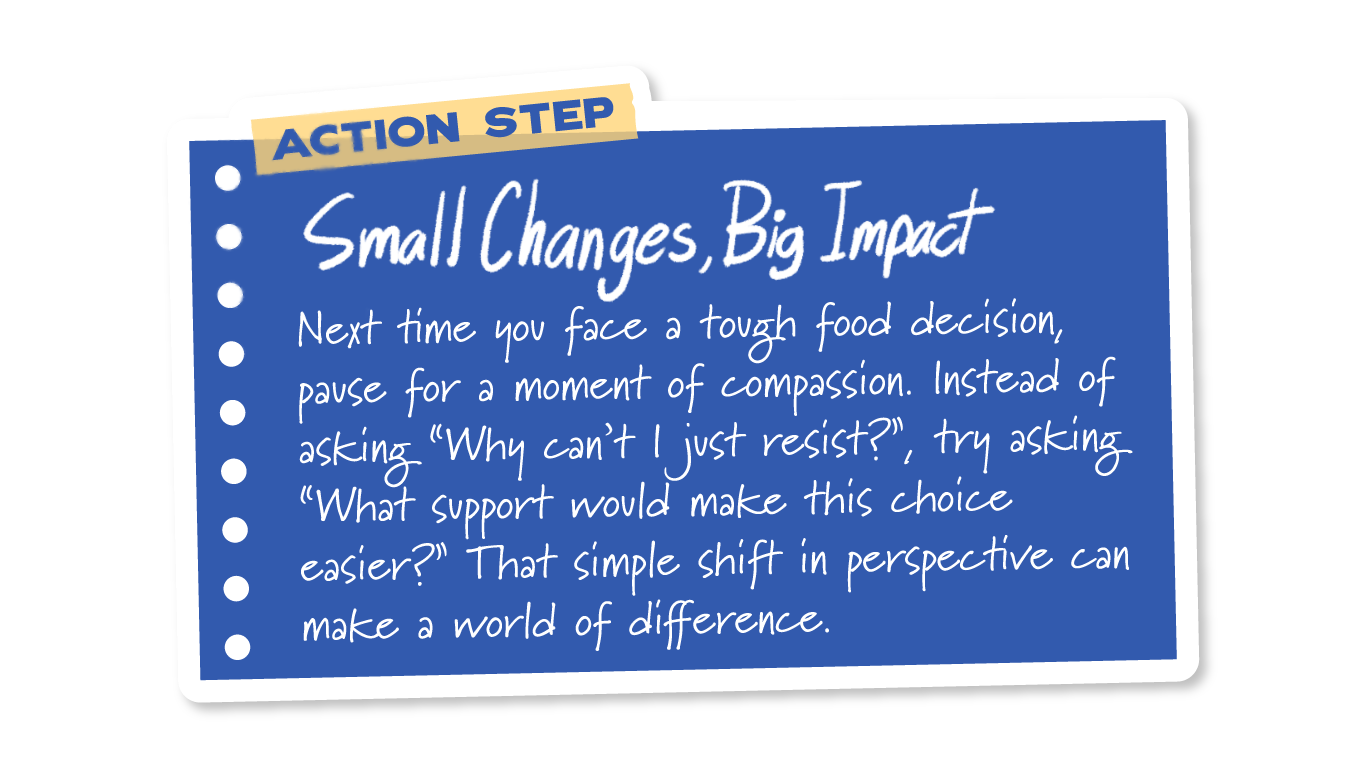

When people talk about eating healthier, the advice often boils down to one thing: “Just have more willpower.” But if you’re living with diabetes, you know it’s not that simple. Food decisions aren’t just about cravings, they’re about your blood sugar, your medications, and the everyday situations you find yourself in.
Here are three big reasons why eating with diabetes is more complex than you may think.
If your blood sugar dips too low, it’s not just a gentle nudge to grab a snack. You may feel a full-on “eat right now or else” signal from your body. That kind of hunger is urgent and hard to ignore. On the flip side, when your blood sugar runs high, you might feel overly fatigued and tempted to grab something quick and comforting for energy.
It’s not that you don’t know what’s healthy or on-plan. It’s that your body is pulling you in directions that make those choices harder in the moment.
Taking insulin or other diabetes meds often means timing meals carefully. Skip food after a dose? Risk a low blood sugar episode. Eat more than planned? Deal with a blood sugar spike. Some medications can even make you hungrier than usual, which can feel like your own body is working against you.
So when people say “just eat less sugar,” they’re missing how much strategy and planning goes into every bite when you have diabetes.
Let’s be real: food isn’t just calories, it’s connection. Whether it’s birthday cake, a holiday dinner, or pizza night with friends, food is tied to moments, socialization, and memories. Saying “no” can feel like missing out or setting yourself apart. Add the stress of managing diabetes day in and day out, and those choices carry a lot of emotional weight.
Sometimes it’s not about the carbs, it’s about wanting to feel normal, included, and free from constant calculations.
Living with diabetes means food choices come with extra layers of complexity—biological, medical, and emotional. It’s not about a lack of willpower. It’s about juggling real challenges that most people don’t see on the surface.
Some examples of support can look like:
The more we utilize supports like those listed above, the easier it becomes to replace judgment with empathy and support for people with diabetes in ways that truly matter.
